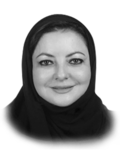I just came back from New York where I attended meetings at the UN on Sustainable Development Goal number four, which aims to ensure “inclusive and equitable quality education and promote lifelong learning opportunities for all.”
Ensuring education for all — let alone inclusive and equitable quality education — is a challenge in itself when we take into consideration the fact that, according to the UNESCO Institute for Statistics (UIS), there are over 260 million children out of school, which is comparable to approximately a quarter of the population of Europe.
The area suffering the most is sub-Saharan Africa where over a fifth of children between six and 11, a third between 12 and 14 and close to 60 percent between 15 and 17 are excluded from education.
Although progress on a global level has been made in the last 10 years, due partly to the efforts of international organizations, it is still a fact that girls more than boys will never set foot in a classroom, and according to the UIS, 15 million girls of primary school age will never get the chance to learn to read or write, compared to about 10 million boys.
However, the two main factors playing a significant role are poverty on the one hand, which creates substantial gaps: 85 girls out of every 100 boys attend lower-secondary school and only 77 of the poorest girls for every 100 of the poorest boys attend upper secondary-school; and on the other, conflict areas, which are increasingly becoming an overwhelming problem.
Numbers show that 22 million primary-age, 15 million lower secondary-age and 26 million upper secondary-age children live in conflict areas.
The consequences of a lack of education touch not only the individual but society as a whole because, without a doubt, sustainable economic growth will be affected. Other consequences to look for are unemployment, poverty, exploitation and higher crime rates among others.
In 2018, our Ministry of Education passed a law prosecuting parents whose children are 30 percent absent from school as this is considered child abuse and constitutes a violation of our child protection law.
Our educational system is free all the way through to university levels. Private schools are on the increase and their number has risen 13 percent between 2013 and 2017 and are set to more than double in the coming years because of a growth in the population, because parents as consumers are looking for higher quality for their children and because the Vision 2030 reform plan — and the National Transformation Program 2020, designed to achieve some of its objectives — has created new educational initiatives.
For now, out of the 7.7 million students in the Kingdom, 87 percent (6.7 million) are in public schools and only 13 percent attend private schools.
This is progressively changing as the education industry is transforming,
taking into consideration the need to strengthen the economy and provide citizens with the skills to compete globally and regionally.
Governments as a whole have an innate responsibility to find ways to ensure that all children benefit from an education, regardless of their social status. Not only is this a human right it is a means to provide and safeguard dignity.
Hoda Al-Helaissi has been a member of the Shoura Council since 2013. She is also a member of the Foreign Affairs Committee within the Shoura.












